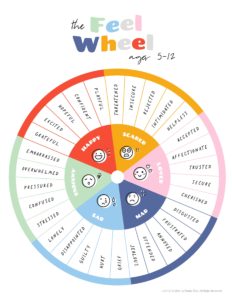“You ALWAYS let her go first!” “We NEVER eat what I want.” “NOBODY likes me…”
Sound familiar? Our kids are masters of hyperbole. They love speaking in absolutes and using language that blows a set of circumstances out of proportion. This is a problem when you’re counting on them to tell you what’s happening at school, between siblings, or with friends. It’s also a pain when it’s the soundtrack to their complaining. It’s hard not to roll your eyes when your 11-year-old says that “we never do anything fun” right after you return from a trip to the arcade where you dropped $20 in the claw game.
So how do we break the habit of “always” and “never” in our kids’ language? Try these 4 strategies.
1. Set a good example.
Are you guilty of speaking in absolutes? If so, you may be where your kids learned to communicate in these terms. Check yourself the next time you say, “You never respond the first time you’re told.” Is that absolutely true? Remember that never means, well, never. Not rarely. Not insufficiently. So hold yourself accountable for using accurate language in your communication. Oh, and be sure to listen to how you argue with your husband. Those fights are often filled with extreme or absolute language.
2. Help identify what’s really going on.
The child who says that you always take her sister’s side probably hasn’t kept a record book, but what she says feels true to her. After you correct her, ask what’s really going on. She might feel ignored, need some quality time with you, need some space from her sibling, or be in a stinky mood and taking it out on you. Extreme language can be a reflection of an internal struggle or frustration, so don’t be afraid to ask questions to dig deeper. Use our Feelings Wheel if your child can’t name her feelings.
3. Offer alternatives to speaking in absolutes.
Your child’s tendency to use terms like “always” and “never” may be rooted, in part, in a lack of options. When you point out an extreme statement, help them restate it in more accurate terms, like “rarely,” “sometimes,” or “often.” This may be especially helpful to younger children still developing language skills. There’s plenty of conflict in your kids’ futures. Helping them be more intentional with their choices of words is giving them a tool that will serve them well.
Helping them be more intentional with their choices of words is giving them a tool that will serve them well. Click To Tweet4. Help your kids see how their words shape their thinking.
Help your children spot “always” or “never” thinking that can lead to negative views of their lives. If your son says, “Nobody ever talks to me at school,” and you don’t correct him, in his mind, he’ll feel like no one ever does talk to him. Often, when we believe something, we start to create a reality that makes it so. Help him redirect his thinking. “Let’s look at what you just said. Did no one really talk to you today?” Encourage him see the gray in what he’s trying to make into black or white.
When are you tempted to use always or never talk?









